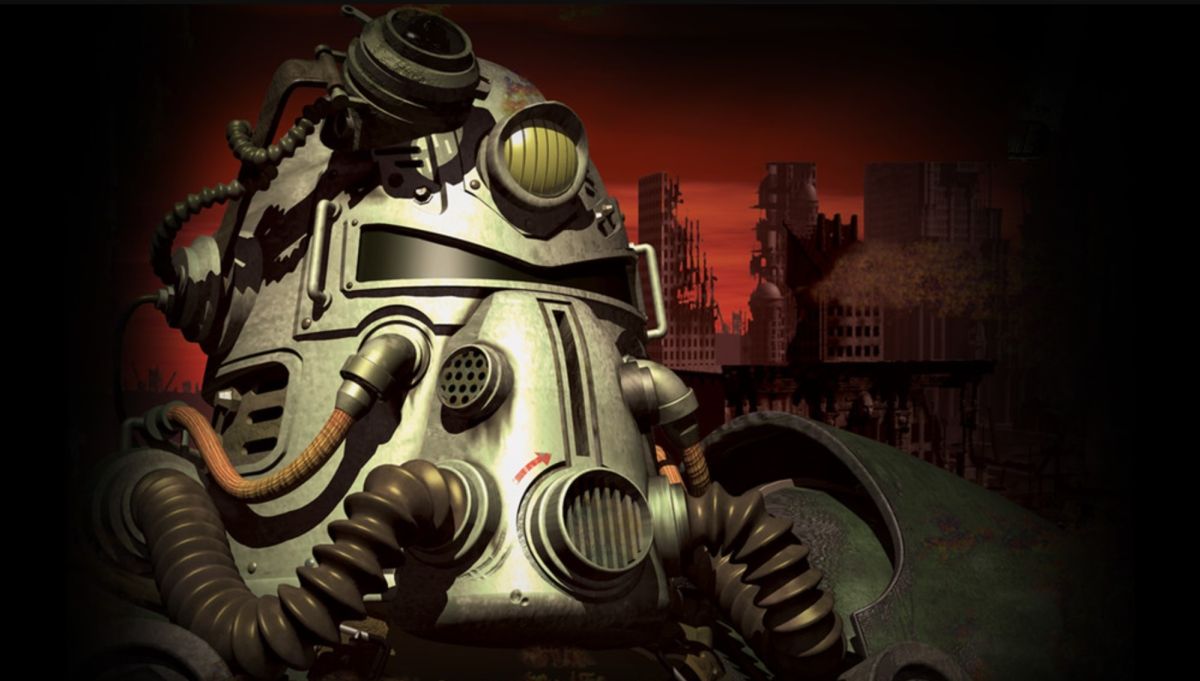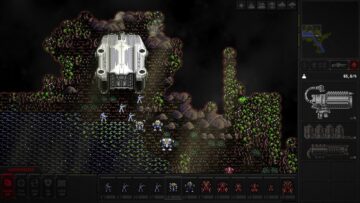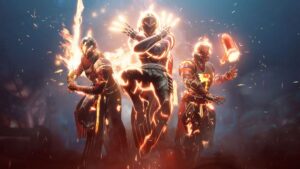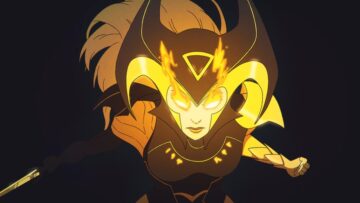
One of my most cherished YouTube videos is this strange 2007 number from a guy with 15 followers and the handle “FilmNoir82”. It shows off a tech demo for an unreleased, post-apocalyptic RPG (with music ripped from David Lynch’s 1984 Dune) by Troika Games, a beloved, but short lived studio founded by former Fallout developers Tim Cain, Leonard Boyarsky, and Jason Anderson.
The demo looks like an alternate interpretation of Fallout in full 3D, distinct from both Black Isle’s “Van Buren” prototype of Fallout 3 and Bethesda’s later vision of the setting. It appears as though you’d primarily play from an isometric perspective, but the demo also shows the player zooming into a first person view, possibly allowing for both immersive first person exploration and zoomed-out tactical combat.
I always interpreted this demo as Troika’s stab at Fallout 3 before getting outbid on the license by Bethesda, but in a vlog on his ever-informative YouTube channel, Troika co-founder Tim Cain revealed that the project would have been very much its own thing. Though Cain is uncertain about exact details, it sounds like the Fallout license was out of Troika’s reach before it put much work into the project, code-named “Epic,” and the team shifted gears into making a bespoke setting.
And that setting sounds rad as hell. Epic would have been set on a world that resembles ours in many respects, but with a planetary ring and multiple moons resulting in “crazy tides” according to Cain. Whether this world was a human space colony or an alternate fantasy universe all together is probably something the game itself would have revealed in its main quest, alongside the reason for its post-apocalyptic state.
Epic’s world was defined by factions, with a magical, urban empire, northern barbarians, “Wardens of Rust,” and Bogmen all vying for control of an unclaimed territory. Instead of choosing a class, your character’s starting skills and attributes would have been determined by what faction you came from and your background in a manner similar to Arcanum or Vampire: The Masquerade – Bloodlines.
Epic would have had an interesting skill system: they were organized into combat, social, thievery, and magic categories, and you would have been limited to the skill tree offered by your background choice. Characters could, however, break into a new skill tree by getting their foot in the door with a crossover skill. For example, if you started with thievery, the intimidation skill would be your crossover with combat, and an intimidation investment would have opened up the possibility for weapons training.
Unfortunately, Troika was unable to successfully pitch Epic to publishers, and the studio shut down in early 2005. More than anything else, it’s Epic’s setting that sets my imagination on fire: this very familiar world that’s slowly revealed to be extremely alien. It reminds me a lot of how Disco Elysium’s uncanny familiarity belies its alternate physics and history, and an apocalypse in a fantasy or far-out sci-fi world is way more appealing to me than some kind of boring old I Am Legend or The Division “plainclothes tacticool guys in an overgrown city” afterscape.
Give me D&D’s Dark Sun setting, Arkane’s first game, Arx Fatalis, or the upcoming indie RPG Dread Delusion over some The Last of Us-alike any day of the week. For another window into the alternate timeline where Troika never died, Tim Cain also recently revealed that the company had its own pitch for Baldur’s Gate 3 way back in 2003.
- SEO Powered Content & PR Distribution. Get Amplified Today.
- PlatoData.Network Vertical Generative Ai. Empower Yourself. Access Here.
- PlatoAiStream. Web3 Intelligence. Knowledge Amplified. Access Here.
- PlatoESG. Automotive / EVs, Carbon, CleanTech, Energy, Environment, Solar, Waste Management. Access Here.
- BlockOffsets. Modernizing Environmental Offset Ownership. Access Here.
- Source: https://www.pcgamer.com/if-i-could-go-back-in-time-and-save-one-canceled-game-itd-be-the-2005-fallout-spiritual-successor-prototyped-by-the-series-original-creators
- 15
- 2005
- 3d
- a
- About
- according
- alien
- All
- Allowing
- alongside
- also
- always
- am
- an
- and
- Anderson
- Another
- any
- Anything
- as
- At
- Attributes
- back
- background
- Baldur's Gate
- BE
- been
- before
- beloved
- bespoke
- Bethesda
- Black
- both
- break
- but
- by
- came
- canceled
- categories
- character
- characters
- choice
- Choosing
- class
- Co-founder
- combat
- company
- Control
- could
- crazy
- Creators
- Crossover
- Dark
- day
- defined
- Demo
- details
- developers
- died
- Disco Elysium
- distinct
- Division
- door
- down
- Early
- else
- empire
- Epic
- Example
- exploration
- extremely
- fallout
- Fallout 3
- familiar
- familiarity
- FANTASY
- Fire
- First
- followers
- For
- Former
- founded
- from
- full
- game
- Games
- Gaming
- gears
- getting
- go
- had
- handle
- Have
- his
- history
- How
- however
- HTTPS
- human
- i
- if
- imagination
- immersive
- in
- Indie
- instead
- interesting
- into
- investment
- Is
- IT
- ITS
- itself
- jpg
- kind
- last
- later
- leonard
- License
- like
- Limited
- looks
- lot
- Magic
- main
- Making
- manner
- many
- masquerade
- me
- Moons
- more
- most
- much
- multiple
- Music
- my
- never
- New
- of
- off
- offered
- Old
- on
- One
- opened
- or
- organized
- original
- ours
- out
- over
- own
- perspective
- Physics
- pitch
- plato
- plato data intelligence
- platodata
- platogaming
- play
- player
- possibility
- possibly
- primarily
- probably
- project
- Prototype
- publishers
- put
- quest
- reach
- reason
- recently
- resulting
- Revealed
- Ring
- ripped
- RPG
- Rust
- s
- save
- Sci-Fi
- seasonal
- Series
- set
- sets
- setting
- shifted
- Short
- shows
- similar
- skill
- skills
- Social
- some
- something
- Space
- started
- Starting
- State
- studio
- successfully
- system
- tactical
- Team
- tech
- territory
- than
- that
- The
- The Division
- The Game
- their
- they
- thing
- this
- though
- tides
- Tim
- time
- timeline
- to
- together
- Training
- tree
- true
- unable
- Uncertain
- universe
- up
- upcoming
- urban
- vampire
- very
- Videos
- View
- vision
- was
- way
- weapons
- week
- were
- What
- where
- whether
- window
- with
- Work
- world
- would
- you
- your
- youtube
- zephyrnet
- zooming







